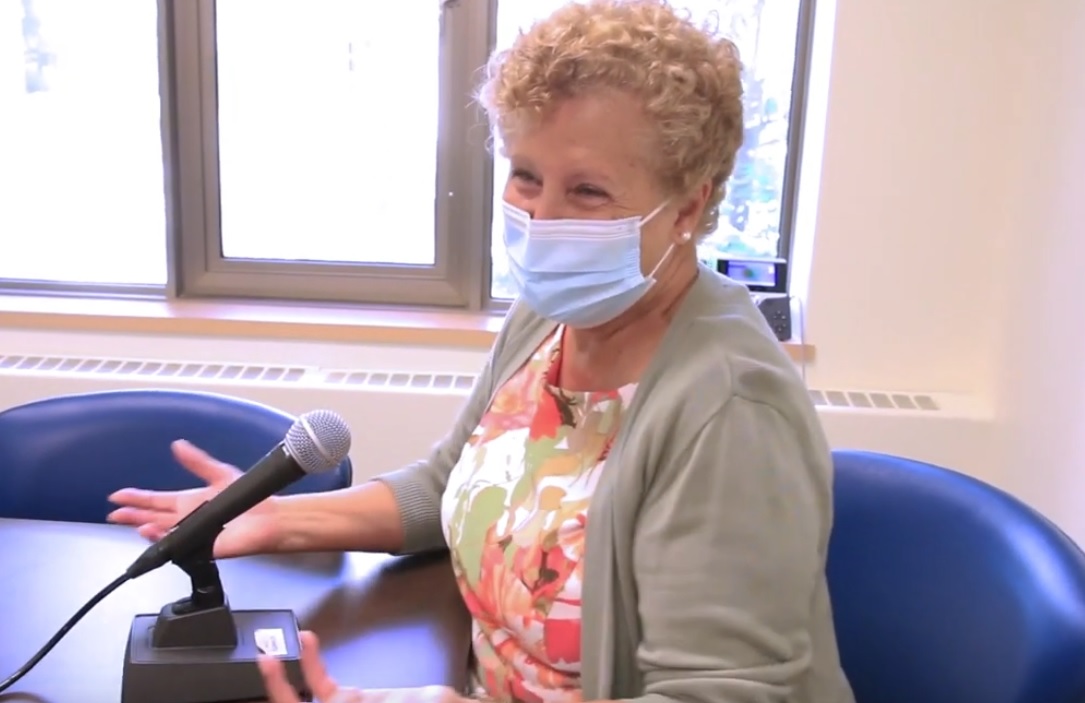A special clinic in London, Ont., is bringing multiple disciplines together to treat those experiencing symptoms long after first being diagnosed with COVID-19.

Wendi Heal, a professional jazz singer, contracted COVID-19 in late December 2020 before vaccination efforts began and she is still faced with symptoms that make it difficult for her to perform.
However, the experts at the post-acute COVID-19 program at St. Joseph’s Health Care London are helping to address Heal’s symptoms.
“I figured I am a healthy woman, I have no underlying conditions, and I should be fixed in two months which is what they told me when I left the hospital, but it kept getting more and worse,” Heal said.
“I could not even walk down the stairs, and my trying to do it was actually making things worse because I was pushing through to exhaustion.”
During her recovery, Heal said she struggled with fatigue that stopped her from walking far away, memory problems, and difficulties speaking due to memory issues and trouble breathing.
Heal, 69, was hospitalized roughly within a week after she started experiencing symptoms in December and narrowly avoided needing a ventilator. While she has been improving, her road to recovery is ongoing.
The long COVID-19 clinic at St. Joseph’s is in partnership with London Health Sciences Centre’s Urgent COVID Care Clinic (LUC3). Patients are seen at the clinic and then connected with specialists depending on what symptoms they are experiencing.
For Heal, that meant working with an infectious diseases specialist, respirologist, occupational therapist, physiotherapist, speech-language pathologist, psychologist and neurologist.
“I know now how to manage my energy levels. They have taught me how to plan, how to alternate an activity and rest,” she said.

Get weekly health news
Heal said she is working on being able to sing again, building up her strength one verse at a time.
“Even if never perform again to be able to sing anything, anywhere, any time is just such a natural part of my being.”
Saagar Walia, coordinator in the rehabilitation program at St. Joseph’s Parkwood Institute, describes the clinic as a “huge collaborative effort” with a team across multiple sites working together to meet patients’ needs.
“We’ve got a very, very talented group of health-care providers that are engaged and are looking to provide the best possible care that we can.”
Referral to the clinic begins through LUC3, with patients who are experiencing lingering symptoms being referred to St. Joseph’s. From there, the clinic team works to determine what specific services they need.
“In addition to that, we might have some specifics within the organization where if a patient has landed as an inpatient on one of their units, they may be connected with our COVID outpatient services once they’re discharged and no longer inpatient within the facility.”
Walia adds that Heal’s advocacy and willingness to share her journey has been phenomenal for the clinic. He says Heal, and another patient, are also working with St. Joseph’s care partnership office to help develop and shape the team’s work.
“That’s been a crucial piece for us is making sure that we actually engage patients in their care and also engage them in the development of that care to ultimately make sure that the programs and services that we’re providing are going to meet the needs of those individuals.”
There is varied data on the prevalence of long COVID-19, but Walia says they’re seeing rates around 10 per cent.
“There is a fair amount of variation in that number. But even 10 per cent of individuals who are diagnosed with COVID, I mean, if you look at the numbers that we have locally here in London, obviously that’s a significant number of people.”
Common symptoms include fatigue, shortness of breath, headaches, joint or muscle pain, sleep issues, mood changes as well as cough, chest or stomach pain, or issues with taste or smell.
Heal has been sharing her journey recovering from COVID-19 in an online blog.










Comments